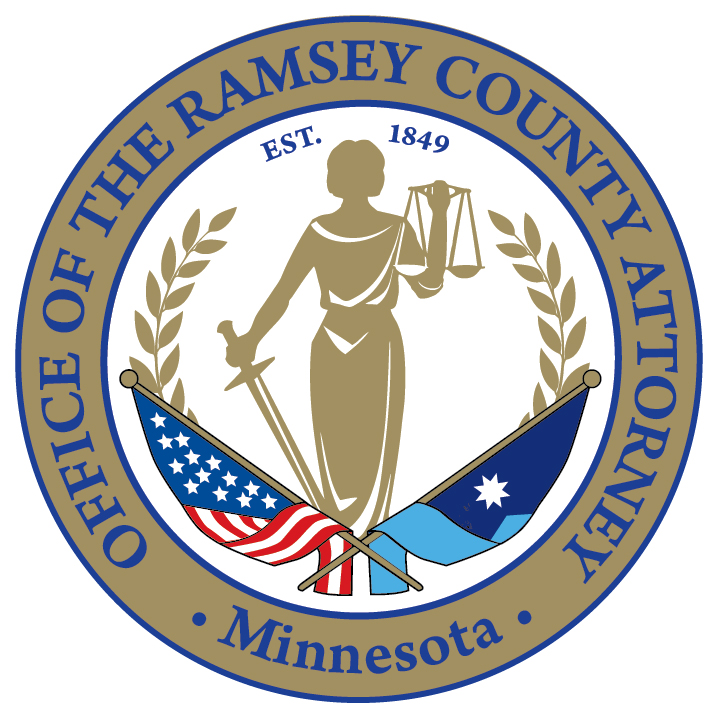Ramsey County services are not impacted by the Federal shutdown at this time.
Runaway Intervention Program
Created in 2006, the Runaway Intervention Program (RIP) is a joint effort among our office, Midwest Children’s Resource Center (MCRC), Ramsey County Community Social Services, and other community partners to identify and address the needs of runaway youth.
RIP helps young people by reducing the traumatic response to being victimized, improving their health, and connecting them with needed services and support. We also help parents/guardians by educating them on the risks of running away, the young person’s physical and developmental needs, and the services that are available to them.
Services are tailored to the young person and his or her family and are culturally appropriate and respectful.
Referrals
Who can refer young people:
- Referrals can be made by law enforcement, MCRC, parents or guardians, other agencies or programs or concerned residents.
How referrals are made:
- Young people can be referred to the Youth Intervention Team at 651-266-5308.
- Fax number 651-266-3010.
Referral criteria:
The young person is a resident of Ramsey County and has one or more of the following:
- Has been or is at risk for sexual assault or exploitation.
- Has run away from home and the parent or guardian does not know where he or she is.
Process
Youth considered at moderate risk for continuing to run away and engage in other risky behavior are served primarily through the Ramsey County Social Services Youth Intervention Team. Some are also served through an empowerment group conducted by a trained therapist. These groups provide a safe environment in which youth talk and learn about a variety of issues, such as sexual assault, safe choices and how to avoid risky situations.
Sexually abused or exploited runaways are referred to MCRC for a comprehensive medical assessment and, for those who qualify, intensive services, including home and/or school visits by a nurse for up to one year, individualized case management, family education and weekly therapy groups.
Success
Ongoing evaluation by Dr. Elizabeth Saewyc of the University of British Columbia has determined that the project is "highly effective for extremely vulnerable runaways."
Young people in the program have shown dramatic improvement in healthy sexual behaviors, increased connectedness with family and school, higher self-esteem, improved mental health and reduced drug use. Participants have gotten back on healthy development tracks, almost, statistically, as if they had not been abused.
In April 2009, the Humphrey Institute’s Public and Nonprofit Leadership Center recognized RIP with a Local Government Innovation Award.
For young people
If you are on the run now and have been abused or sexually exploited, please call 9-1-1.
It is illegal for a person under the age of 18 to leave his/her parent/guardian’s home without permission. It is also dangerous. If you are absent from home without permission, you may be taken into custody and have to go to court. In court, the judge can:
- Order you to go home and stay home.
- Place you under supervision of a social worker.
- Send you to a group home or foster home.
- Transfer custody of you to someone else.
- Order you to do community service.
- Order other programming like counseling and/or CD treatment.
- Cancel your driver’s license.
Sometimes it may seem that leaving home is a good choice, but it can put you in danger. Before leaving, reach out to someone safe to keep yourself safe.
If you have run away from home, the Runaway Intervention Program can help connect you to services, including abuse documentation, case management, home visits, counseling, and health education.
For parents and guardians
If your child is gone from home without your permission, call police. You do not need to wait 24 hours to call. Call right away.
The police will enter your child’s information into the National Crime Inventory Center (NCIC) and attempt to find your child. If your child is found he or she may be taken into custody. A runaway petition may also be filed in juvenile court. If your child admits to being a runaway or is found to be a runaway by the court, the judge may:
- Order your child to go home and stay home.
- Place your child under supervision of a social worker.
- Send your child to a group home or foster home.
- Transfer custody of your child to someone else.
- Order your child to do community service.
- Order other programming, such as counseling and/or chemical dependency treatment.
- Cancel your child’s driver’s license.
Resources for parents and guardians
- Midwest Children’s Resource Center (651-220-6750)
- National Runaway Switchboard (1-800-621-4000)
- Bridge for Runaway Youth, Inc. (612-377-8800)
- Sexual Offense Services (651-643-3006)
- Crisis Connection, 24 hours (612-379-6363)
- Children’s Crisis Response (651-774-7000)
- Safe Zone, youth drop-in center (651-224-9644)
- Face to Face Health and Counseling (651-772-5555)
- Room 111, STD testing & treatment (651-266-1352)
- Health Start Clinic (651-312-1995)
